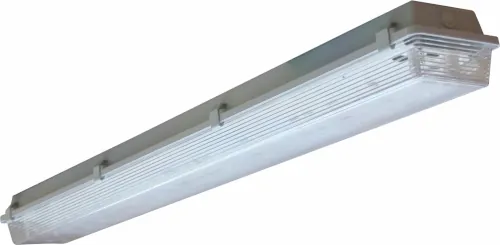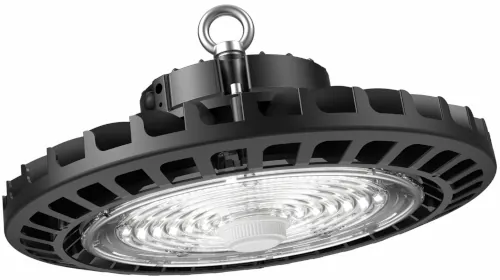Temperature resistance is a critical consideration when selecting luminaires for use in high-temperature environments. The housing and lens materials must be able to withstand high temperatures without degrading, melting, or becoming damaged, as this can significantly impact the longevity and functionality of the lighting fixtures.
A common issue in luminaire design is inadequate heat sinking, resulting in reduced lifetimes of the chips and drivers. Therefore, choosing materials with excellent thermal conductivity and heat dissipation properties is crucial in ensuring the longevity and optimal performance of the luminaire. In the petrochemical industry, the selection of housing and lens materials is crucial due to the harsh exposure to chemicals, fuels, and high temperatures. The materials must be able to withstand exposure to these conditions without compromising their structural integrity.
Generally, materials such as aluminum and stainless steel are highly resistant to high temperatures and are commonly used in industrial and outdoor lighting fixtures. On the other hand, polycarbonate and acrylic are also high-temperature resistant but can become brittle at low temperatures.
It's important to note that the manufacturer's datasheet should provide information on the temperature resistance of the specific material used in the luminaire. Therefore, selecting materials with excellent temperature resistance, thermal conductivity, and heat dissipation properties will help ensure optimal performance and longevity in high-temperature environments.
The most common materials used for luminaire housing and lenses and their temperature resistance are:
Aluminium
Resistant to high temperatures and commonly used for outdoor and industrial lighting fixture.
Stainless Steel
Resistant to high temperatures and commonly used for industrial lighting fixtures.
Polycarbonate (PC)
Resistant to high temperatures but can become brittle at low temperatures.
Acrylic
Resistant to high temperatures but can become brittle at low temperatures.
Polyethylene (PE)
Resistant to chemicals, fuels, and impacts, making it ideal for harsh industrial environments.
Glass
Resistant to impact, UV rays, and certain chemicals, but can be brittle and prone to breaking.
It should be noted that where the materials noted above cannot meet the requirements,, there are specialised materials designed to withstand unique situations, particularly in specialised chemical environments.
Special care should be taken, and expert advice sought to ensure the appropriateness of the materials to be used in the desired application.
Our R&D specialists can assist you with product specifications and or lighting solutions specific to your applications.
Specialised applications
- Hazardous
- Oil and gas
- Mining
- Food and Beverage Luminaires
Luminaires used in the food and beverage industry in South Africa must comply with various standards to ensure their safety and suitability for use in food processing and preparation areas. The South African National Standards (SANS) is the national standardization body responsible for developing and publishing national standards that such luminaires must comply with. Additionally, HACCP, a food safety management system, mandates that luminaires used in food and beverage processing areas comply with relevant standards to prevent contamination and ensure food safety.
Ingress Protection (IP) ratings, such as IP65 or IP66, define the degree of protection against the ingress of solid and liquid objects into the luminaire, making them crucial for food safety. Luminaires must have a high IP rating to prevent moisture ingress and enable easy cleaning. It is critical to select a luminaire that complies with relevant standards for the food and beverage industry in South Africa to guarantee the safety and suitability of lighting for use in food processing and preparation areas.
The manufacturer's datasheet should provide information on the standards that the luminaire complies with, including its temperature resistance, IP rating, and chemical resistance to ensure its suitability for the specific environment.
It is imperative when selecting a luminaire, that it complies with relevant standards for the food and beverage industry in South Africa, as this helps ensure the safety and suitability of the lighting for use in food processing and preparation areas.
If you require assistance on finding a solution to your application our specialist Engineering and R&D team ready to assist you






